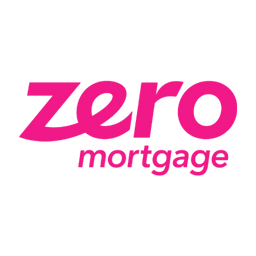Home equity is calculated by subtracting the amount you owe on your mortgage and other debts tied to the house from the property value. So, if your home is worth $575,000 and you owe $415,000, you have $160,000 in equity. Depending on how much equity you’ve built-up, you may be able to convert it to cash through a loan product.
Keep reading to learn more about your options to access the equity in your home and other good options that doesn’t require you to take on additional debt.
What Are Your Options to Access Your Home Equity?
Below are loan products homeowners commonly use to tap into their home equity:
- Home equity loan: It acts as a fixed-rate second mortgage that lets you borrow up to 85 percent of your home’s equity. You’ll receive the loan proceeds in a lump sum and make equal monthly installment payments over a 20- to 30-year period. For example, if you owe $275,000 on your mortgage and your property is valued at $415,000, you could be eligible for a home equity loan of up to $77,750 ($415,000 * .85 – $275,000).
- Home equity line of credit (HELOC): This home equity product acts as a revolving line of credit. Instead of receiving a lump sum, you’ll get access to a pool of cash that you can borrow against during the draw period. It typically lasts for 10 years, and you’ll make interest-only payments on the amount you borrow. When the draw period ends, the amount you owe will be converted to a loan and payable over 10 to 20 years. Since the interest rate is generally variable on HELOCs, your monthly payment could change over time.
- Cash-out refinance: A cash-out refinance involves replacing your current mortgage with a new one and pulling a portion of the equity out in cash. You can generally borrow up to 80 percent of your home’s equity, and most loans come with a fixed interest rate. To illustrate, if you owe $195,000 on your home and it’s worth $345,000, you could receive up to $81,000 ($345,000 * .80 – $195,000) in cash at closing. The lender would pay off your existing mortgage, and you’d owe $345,000 on your home.
What Is a Shared Equity Agreement
A shared equity agreement can act as a home equity loan alternative. It allows you to partner with a home investor to access the cash from your home, and you won’t have to borrow against your home.
The cash you receive through this arrangement is known as a co-investment, and the home investor gets rights to a portion of the change in your home’s future value in exchange. They do not, however, receive any rights to your home itself; you remain the sole owner of your home during this process.
The maximum acceptable debt-to-income (DTI) ratio is determined by your credit score. Also, some second homes may qualify for a residential co-investment. But a commercial property isn’t a good fit for this arrangement.
If you’re approved for a co-investment, you can use the funds to live life on your If you’re approved for a co-investment, you can use the funds to live life on your own terms. That could mean launching your dream business, making a big-ticket purchase, boosting your emergency fund, making renovations, paying off debt, or however else you see fit.
How Does The Process of Working with Home Investors to Access Equity Work?
Here’s what to expect when you enter into a shared equity agreement:
- Step 1: You inquire about a shared equity agreement.
- Step 2: The home investor arranges an appraisal to determine the property’s fair market value and creates an agreement for you to review.
- Step 2: You sign the closing documents and receive your co-investment. or the co-investment.
At the end of the agreement, the homeowner can sell the property or buy out the investor if they wish to remain in the home. Assuming the property value has increased, the investor is entitled to their fair share of the increase plus the co-investment. But if the property value has decreased, the investor will share in the losses (if the agreement wasn’t terminated prematurely) and only recoup the co-investment minus the decrease in value. Again, throughout this process, you remain the full owner of your home.
The Benefits of Using a Home Investor to Tap into Your Home Equity
There are several reasons why using a home investor to tap into your equity could be a good idea:
- You could get approved even if you have less than perfect credit.
- You can convert your equity into cash without taking on additional debt.
- You won’t be on the hook for costly principal and interest payments.
- The application process is relatively simple.
- If you don’t terminate the agreement early, the home investor shares in the gains and losses (if you don’t end the agreement early).
- You’ll have several years to decide how to move forward.
- You could get access to a large sum of cash.
- A co-investment is not a co-ownership, so you maintain full control of your home.











